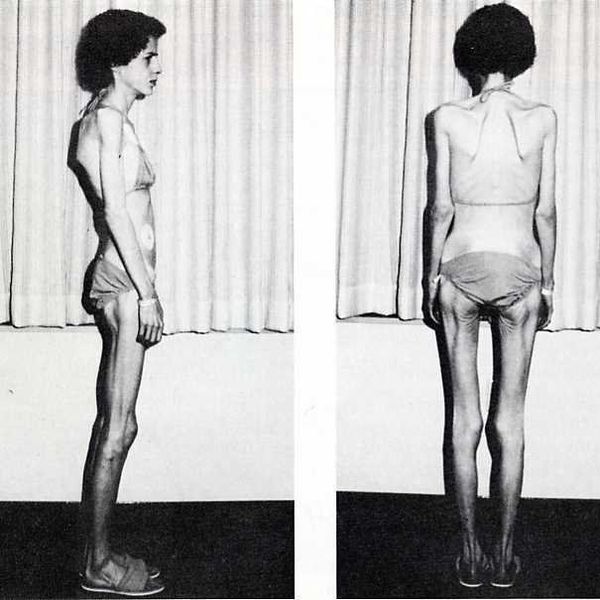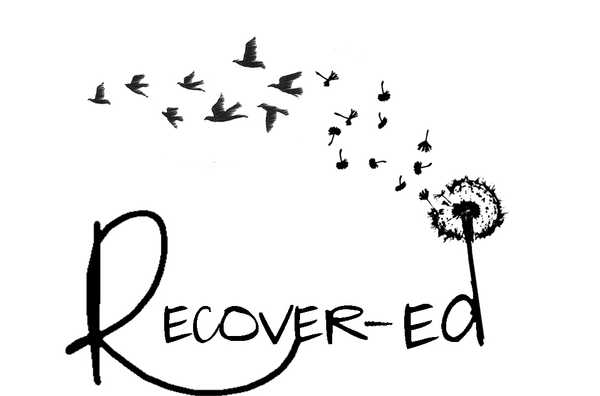The name Anna will be used to keep the subject of this article anonymous.
After writing about body trends a while ago, Anna had some criticisms (as usual) and told me that there was a bigger story there. She suggested people with anorexia and bulimia should have been supported more in the article. My sister suggested I interview her for an article -- suddenly, my idea became clear. I wanted to write about our stories of my family's eating disorders. This article is part one of two articles that describe our relationships with food.
Most people believe that anorexia comes from body-image issues, but this is not necessarily the case. It is an issue that has much deeper roots than mere dissatisfaction with what the person sees in the mirror. A lot of people that suffer from eating disorders control their food because it is used as a sedative and stress reliever for everyday life. It is used to confer the mental battle that occurs throughout their day-to-day lives onto something more easily manipulated and controlled, such as food or their weight. Body-image issues are mostly how your body deals with trauma. To cope, you have to look a certain way, so you can be a certain way. To conquer this ongoing battle to be a certain way—an overwhelming concept with many different aspects and struggles, involving your personal achievements, social and family live, and general worth as a human being—this battled is simplified, allowing a person to lump their entire worth into one single, achievable goal: manipulating their body. You can’t control everything in your life, but you can control your body. When this need for control becomes powerful enough, mental illness will surely arise. People with anorexia simplify their lives because they have too much stress. That means only doing small things to get by.
Anna had struggled with anorexia and bulimia for several years. This was due to her undiagnosed ADD, combined with genetic and environmental influences. In high school, Anna had a lot going on. She was in a lot of AP or advanced classes, and played soccer. The necessity of perfection and control in every aspect of your life makes these perceived hills into mountains, and any degree of failure would compare to total personal failure. It also didn’t help that she didn’t feel like she had a secure group of friends to support her. With her ADD, it had almost become unbearable. She felt out of control of her life, but she knew she could control one thing: food.
It all started about four years ago. Anna got hurt playing soccer and had to get knee surgery. This was extremely stressful for her, because she used soccer as a way to become healthier and lose “pre-teen awkward stage” fat. After her surgery, friends and family were sending her get-well gifts, containing mostly chocolates and unhealthy food. Because she just had surgery, she could not exercise to get the weight off. So she decided not to eat the food, so she wouldn’t gain the weight. Anna gradually increased in “off-limit” foods; certain foods grew to embody personal failure. As this list of off-limits food grew, her anorexia grew. The avoidance of personal failure eventually became avoidance of food. She couldn’t eat what she wanted to, which caused her to downward spiral into her eating disorder.
In high school, Anna would go anywhere her friends went to confirm her self worth. One night, she went to a Friday night football game with her friends. There is one time that she remembers as being a successful anorexia day. She had stayed in bed all day because she didn’t want to see the kitchen. To distract herself, she decided to stay on Pinterest all day. Throughout the course of the day, she managed to eat one apple. When riding in the car with her friends to the football game, she was almost on a high. No one could tell her that she was less successful that day because she didn’t eat that day. One of her friends asked her about her eating disorder on the way over to the game. She thought it was nice that someone cared to ask. Anna wasn’t looking to be a model; she just wanted to look like someone worth caring for.
Body checking became very important for her. I remember being in the bathroom with her and she would just stare at herself her hours. She was comparing herself to other people to see if she looked skinny, and made sure nothing jiggled. She would feel her bones every night to check if they were still there. She wanted to look at reflective surfaces to see if she approved of what she saw, but she always disapproved. She looked disappointingly human; she wanted to look like someone who needed to be asked if they were O.K. or if she was about to collapse. Anna wanted to be carried into the hospital, and she wanted people to just look at her and be concerned.
A normal day for Anna started by waking up and checking herself, then she would do crunches if she didn’t like what she saw. After that, she then created a plan for the day and how to treat all the imperfections she saw in the mirror. She would do what needed to be done, but she would constantly think about when her next meal is and how to avoid it. Anna also had to think of ways to justify herself to people as to why she wasn’t eating. After consulting with our mother, she became on outpatient, where she saw a doctor and a dietitian three times a week. To make it seem like she was doing better and gaining weight, she would modulate water consumption and tell people what they wanted to hear. She also didn’t talk to the therapist about her eating disorders. Anna manipulated a lot of people to think she was OK. She thought, “Who cares that I'm about to die? Let's see if I matter enough.”
Anna considered a failed day when she ate normal things. This is when she had to eat in situations to look normal in public. When she would go to bed without hunger pains. Hunger pains had becoming comforting, and she had denied herself that. Holidays were bad because of the amount of food offered at every meal. For Thanksgiving one year, she had calculated all the calories that she was going to eat that day and ran eight miles in the morning to compensate. When she started to have more failed days than successful days, the desire to compensate for these failures led her spiraling into bulimia.
For Anna, anorexia was a gateway to bulimia. It became hard for her to stop. It started after she first took her antidepressant. With the pill, she had less motivation and became less strict with her food intake. Food was the only thing that made her feel anything, causing her to become more bulimic. In her view, bulimia is when you finally are losing control of your life. The stresses of life are getting to be too much and you can’t even seem to control your food intake. Like Anna, bulimics know a lot about food and develop extensive knowledge about some of the more unconventional aspects of food, such as which ones are easier to regurgitate. A successful day as bulimic meant to eat everything and leave nothing out. Bulimia meant that on days when she failed at anorexia, she could be successful in her bulimia. She wanted to feel empty at the end of her purge. She would do a lot of tricks to make herself purge, including drinking so much water that the water forces involuntary regurgitation. After a while, feeling like there was food in Anna's stomach became a horrible feeling. She became very controlled about how and where she purged. She didn’t want it to interfere with her life. This meant avoidance in social behaviors, as opposed to an avoidance of disorderly behaviors. The eating disorder became the gauge that judged Anna's entire worth and life.
Treatment is very important for recovery. Anna wishes that she went to a rehab facility, because it would have quickened the process. Eliminating extraneous stress allows the patient to focus on their eating disorder, to learn what is wrong and why the disorder affects them the way it does, and how to conquer the invasive thoughts. She now goes to a group therapy, where she meets with girls who still have eating disorders and other girls who are in recovery to discuss their experiences. Anna is now in recovery, and is still getting better every single day.
Finally, I asked her what she wanted to tell people with an eating disorder. She said to go and get a job and make you go outside everyday. Make sure to do things that make you feel good about yourself. Think about what you’re missing out on, and it’s important to deal with your real life problems. Relationships do matter; talk to people you know and ask for help. Instead of looking at a day as successful, what other things could make it successful? The only thing that can fix you is making the decision to take that first step: not being afraid to ask for help.





















